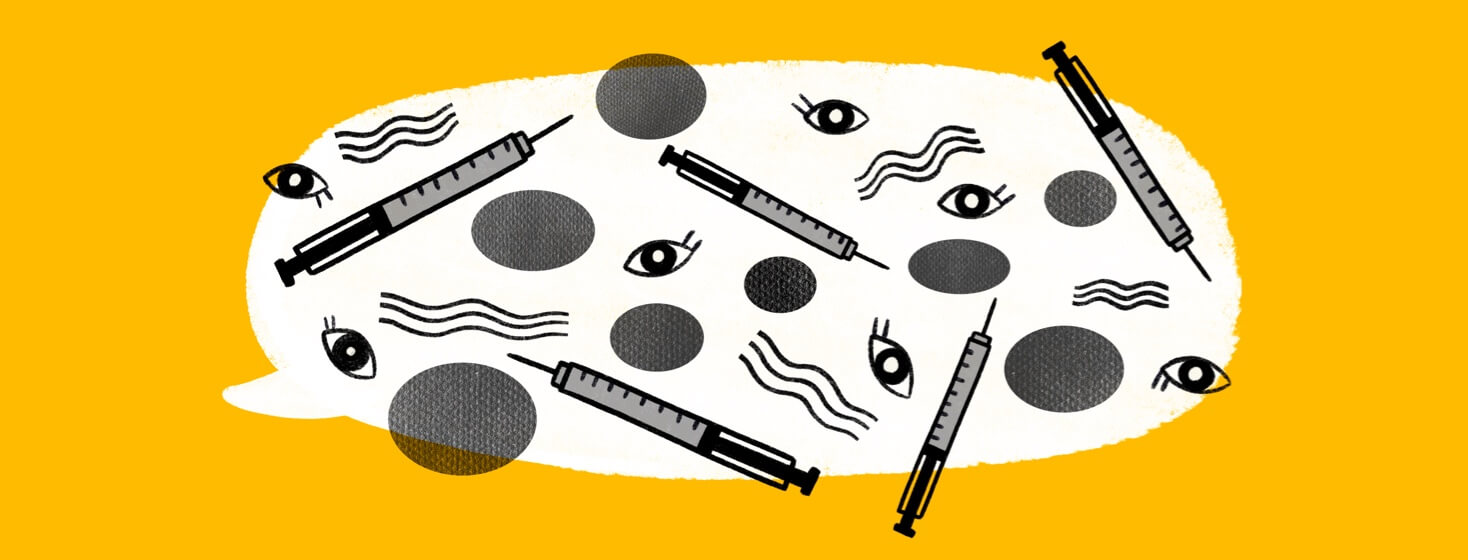The Three A's of Macular Degeneration
A person wearing sunglasses and using a white cane. If we are honest with ourselves, that is the first image of someone with vision loss that would have come to us when we were B.MD.D. (Before Macular Degeneration Diagnosis). We would likely have thought of that person as helpless.
We were wrong
Now, we know that there is a huge difference between having low vision and no vision (being completely blind). Almost all of us with age-related macular degeneration (AMD) are on a spectrum from some central vision loss in one eye to having that in both eyes.
Even in that case, we retain peripheral vision. We can see things from the corner of our eyes. And we know that we are far from helpless.
Claiming my power and sharing it
The question is how we make the best use of the vision we have and deal with changes in our vision. Because we know that our vision will change over time. And those changes do and will affect our daily lives.
Managing change
“Change happens. Will the change manage you or will you plan for and manage the change?” That’s what I would tell clients back in the day when I worked in public relations.
They were all dealing with some new circumstance: a news story or report putting them or their company in a bad light or good news: a product they wanted people to buy or think kindly about.
For us, it is about our change in vision. How do we accept and deal with the change? There are 3 concepts have been rumbling around in my mind:
Agency
Agency means the capacity of individuals to have the power and resources to fulfill their potential. In the simplest of terms that means that you have what you need to achieve your goals, to live your life to the fullest.
Of course, that will vary from person to person. Here’s what that means to me, right now.
My goals
- Knitting 15 scarves or caps for a charity that puts together Christmas packages for merchant sailors? I can do that with a bright light.
- Keeping up with my book club’s reading schedule? If the type’s too small, I can use the light/magnifier or get the book on my tablet.
- Keeping up with the daily news? Easy with my laptop and its technology to increase the size of pictures and text.
- Get my daily exercise? I use a step tracker. If the numbers are too small on the watch, I can read them on my cell phone. And, there’s always walking just to be walking.
Feeling that I can achieve my goals including the basic one of doing as much as I can while I can, is what gives me “agency.”
Advocacy
My father-in-law was an advocate, an attorney who argued for his clients in court and in negotiations. Hanging in his office was “Avocat,” a print of a rather pompous looking lawyer.
Today, you are likely to find an advocate talking with a member of Congress, or a state legislator. Advocates are those who aim to influence decisions, and policies within political, economic, and social institutions.
I’m an advocate it turns out because I work to encourage people with AMD to be advocates for themselves.
How to advocate
We can all be advocates for better lighting in our community centers and churches. We can write letters to our Members of Congress to encourage them to fund research on macular degeneration and its causes. We can support nonprofit groups that provide research funding. Lots of ways to be an advocate.
We can talk about our macular degeneration with friends and family and people who share the diagnosis. The more people who understand the disease and the need for new treatments, the better.
Awareness
Awareness? That one is easy. Talk with friends and family about macular degeneration. Share this newsletter with someone who could use its information. Explain to a salesperson why you need help in reading a label. Trying to cram all those instructions on the back of a package is tough duty. Reading them is even tougher.
Bringing it all together
Perhaps the most important way to have agency, be an advocate, and spread awareness is to speak up when you feel that your voice is not being heard by your health care professional or someone in your community. That can be tough but when it works you get that great feeling of agency, that you’re living your life to the fullest.

Join the conversation